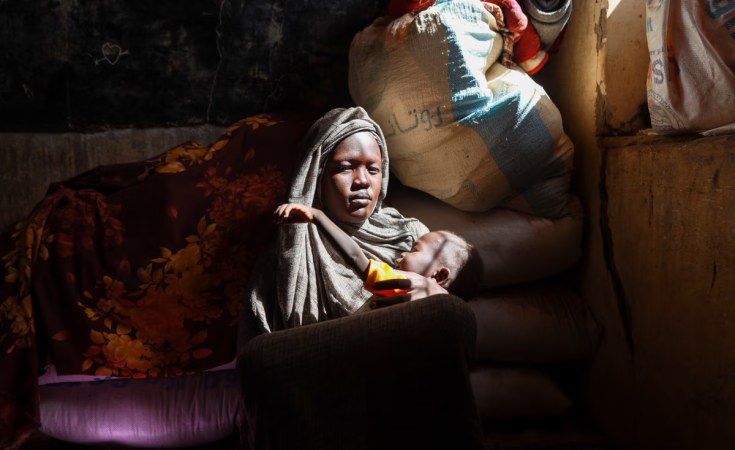Cairo / Wadi Halfa — A number of people fleeing the war in Sudan have reportedly died during perilous smuggling journeys on the road through the Sahara desert into Egypt. On January 8, the United Nations High Commissioner for Refugees (UNHCR) reported that 378,504 people have arrived in Egypt since the war began.
A Sudanese refugee in Cairo told Radio Dabanga that the number of Sudanese refugees in Egypt increased dramatically after the Rapid Support Forces (RSF) took control of El Gezira on December 18. According to the UNHCR, the number of displaced in Wadi Halfa, a locality near the border of Northern State and Egypt, seeking Egyptian visas is on the rise.
Most refugees have arrived in Egypt from Sudan via smuggling routes, as the visa procedure in Wadi Halfa locality takes at least two months. Several people have died crossing the border through smuggling, the source reported, adding that "the trips are especially risky due to the lack of medical care."
He added that there are long queues of Sudanese asylum seekers at the UNHCR headquarters in Cairo. "The UNHCR does not process applicants quickly," he said.
Sudanese people who have entered the country legally can obtain a temporary stay permit from the Egyptian immigration service. He warned that the Egyptian authorities have "carried out campaigns" against asylum seekers who have entered the country illegally.
He added that organisations are working to provide services to asylum seekers and called on the UNHCR to take action to improve the treatment of asylum seekers and refugees in Egypt.
The humanitarian situation in Wadi Halfa is getting worse, according to a UNHCR report published last week, with many new arrivals experiencing their second relocation, "thus seriously lacking resources to sustain themselves." The locality was already facing acute challenges in providing basic services to the displaced and refugees.
As previously reported, dire humanitarian conditions prevail at the Wadi Halfa and Argeen border crossings into Egypt, as well as at other border crossings to Ethiopia and South Sudan. Several deaths, including elderly women and children, at the Egyptian border have been attributed to dehydration, heat stroke, and infections from potentially contaminated water.
End November, the head of the transport chambers in Wadi Halfa called on the Egyptian authorities to facilitate the entry of Sudanese drivers and ease visa procedures, after they suspended multiple visas for Sudanese drivers.
In August, Sudanese lawyer Amr Kamal told Radio Dabanga that the number of Sudanese stranded in Wadi Halfa ranged between 15,000 to 20,000, exceeding the locality's population. The number had reportedly decreased to 7,000 by end November.
Egypt carried out a series of deportations of Sudanese and people of other nationalities to Sudan through the Oseif border crossing in Red Sea state in July.


